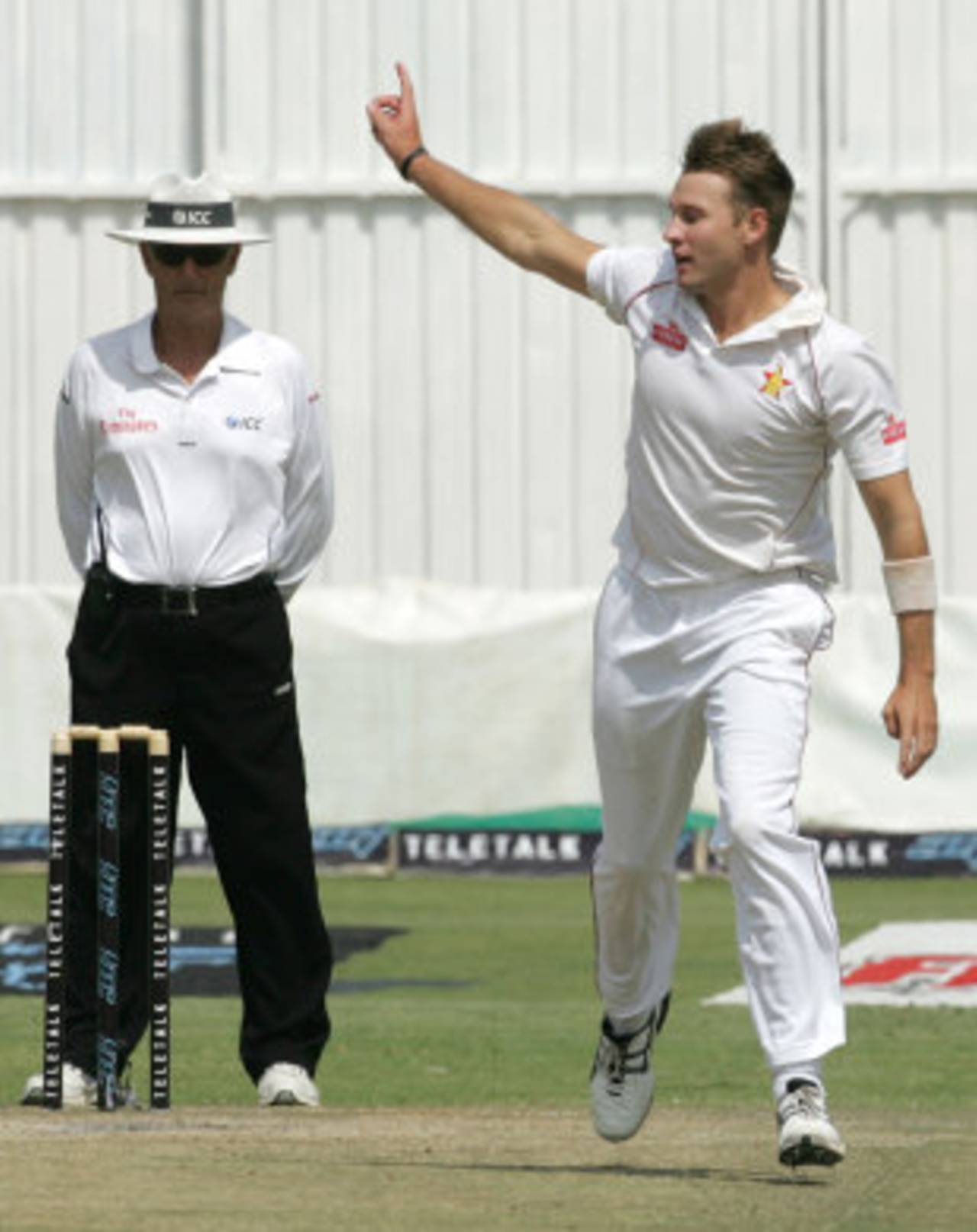Sore losers blame the officials. Just think of the abuse football's Howard Webb and rugby's Bryce Lawrence get. Some of it is even justified.
Just like the anger fans on both sides of the Zimbabwe-Bangladesh contest will rightly feel when reflecting on the decisions made in this series. By day three, four glaringly incorrect decisions had been made. The only consolation was there were two on each side.
Regis Chakabva, Shingi Masakadza and Tamim Iqbal were incorrectly given out caught behind to balls they did not nick and Mohammad Ashraful was judged lbw to a Kyle Jarvis delivery that was clearly going down the leg side.
Four out of forty wickets amounts to 10%, which is a significant error rate. It does not even take into account the marginal calls or the fact that the match is not over yet. Mistakes happen but to have this many raises obvious questions about the level of seriousness that this contest is treated with.
We already know that Zimbabwe Cricket does not have the funds to cater for DRS but they also seem intent on making sure this is the Test series technology abandoned. They don't even have the means to secure a high-quality production. SuperSport, the broadcaster, have brought as many cameras as they use for a domestic match in South Africa to cover an international here. That's nine instead of 24 and the disadvantages of that have been on display.
The side-on camera angles have made judging no-balls and stumpings difficult to judge even on replay. In the first Test, Elton Chigumbura was bowled off a Rubel Hossain no-ball. The correct call was made after several minutes but the pictures were so fuzzy, they seemed to be coming out of the 1970s.
Other replays have been similarly hazy and they all call for one thing: that it would make sense for there to be a regulation on the minimum number of cameras that have to be used for every international. Like DRS, until someone other than the participating boards can pick up the cost, that is unlikely to be put in place.
But they are not to blame for the poor decision making. Even the creaking cameras in operation here could tell that bat had not touched ball in the Chakabva, Masakadza and Tamim cases. Rather, it seemed a case of the more and the louder the umpire was yelled at, the more convinced, or even intimidated, he was into raising the finger.
Perhaps in the DRS age, umpires have forgotten that even simple catches can be referred if they aren't entirely sure. That is all it would have taken for the correct decision to be made.
That's not asking for innovative technology, just accuracy. The most anyone can hope for is that when the reviews on performance are done, these and other grievances, will be brought up.
Before that can happen, people watching the series will continue to have reason to suspect theirs is the forgotten, neglected contest. On the evidence, they are not wrong.
It has been scheduled at a time of year when most of cricket watchers are either stuffing themselves with IPL or feeding their interest on the county circuit. Some don't even know these matches are happening, most don't care. The diehards remain interested but even they have been put off somewhat.
For that, the quality of cricket is to blame. If someone wanted to find a compilation of dropped catches and soft dismissals, they need not look further than this series. Both have occurred in abundance which makes a case for why these two teams need to play more Test cricket, against higher ranked countries as well as each other.
Then, they will be exposed to batsmen who place a high enough value on the wickets not to give it away and fielders who put their bodies on the line with far greater success. They will also have the advantage of better technology and it may result in better decision making, which will only serve to aid their progress in the longest format.
Firdose Moonda is ESPNcricinfo's South Africa correspondent
